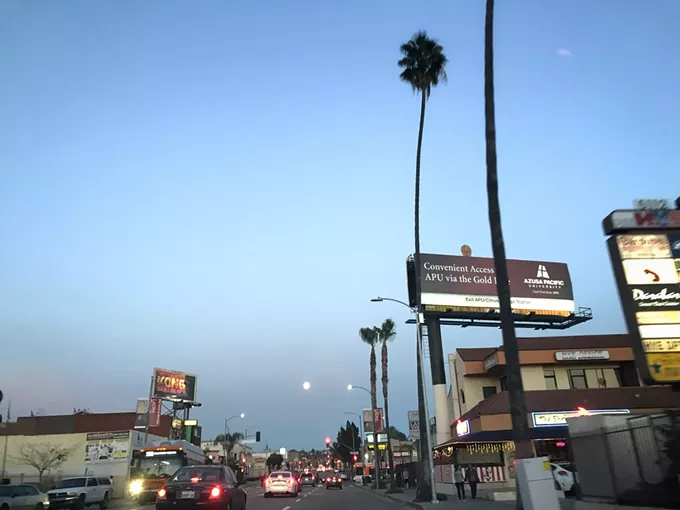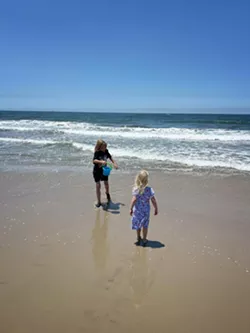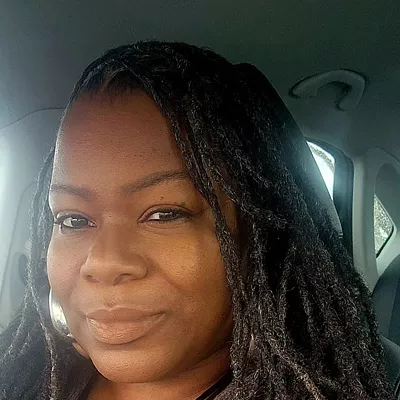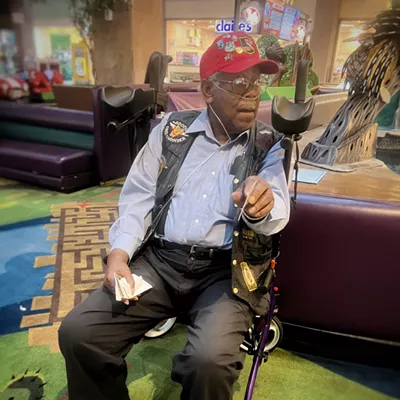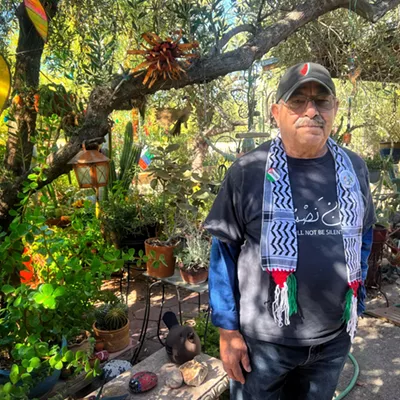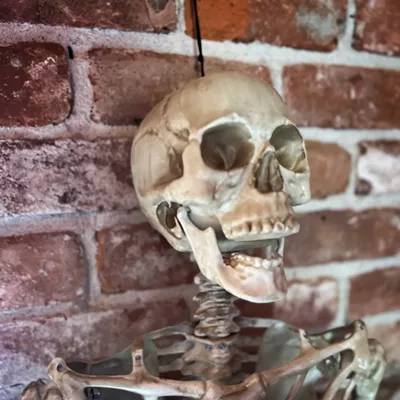I wake up in an Airbnb out in the San Fernando Valley, near Laurel Canyon Boulevard and Oxnard Street. Little bare feet careening across wood floors become thunderclaps in the corners of my brain. Children squeal, mama feeds the twin babies in another room, and I stare at the closed blinds the homeowner carefully installed to create total darkness in daylight, awed at the soft California light sneaking its way in. It is a light of sensations.
Who hasn’t given up on Los Angeles as a lost thing? It is, and was, too much and too soon, a perplexing amalgamation of hamlets and cultures, bad timing and haunted histories of the American nights. It gave us one true American art form, inaugurated by silent-film composition master D.W. Griffith, who died living alone at Hollywood’s Knickerbocker Hotel in ’48.
Beyond skyline shifts and ugly gentrification, the city is as it was when I lived here. Nostalgias that were never my own but somehow owned my head anyway, as pop-figure obsessions came and went, all come alive, and they’re all ghosts: John Gilbert, Clara Bow, Ramon Navarro and Sexy Sadie, Dennis Wilson, KROQ, Arthur Lee, Joan Didion, Judee Sill, John Fante, Wanda Coleman, Gene Clark, an ex-father-in-law, and so many others. The traces, glimmers and tragedies become a feverish din that defines the city for me, building a world so crammed with false self-assurance it could never rest — its one good foot already in the crypt. The tragedies become all bigger than life.
LA is an ache. I once found a yellowed photograph between pages of a used book. A yellowed Kodachrome showed a young, forlorn woman standing in a flowered dress and an affected half-grin, the Hollywood Reservoir and the back of a child’s crying face at the bottom edge. But her presence was murky, almost like a mistake, because something unseen was trying to take its place, a deeper sadness, or a real joy. It transcended beauty. Its simplicity compressed in me that sort of beautiful yearning of Los Angeles. The snapshot rummaged my insides, and I kept it until I lost it.
Even the way the sun lowers into a California haze and expands the world with liquefied light, the tallest palm trees on Earth become overwatch specters as light goes dark. It switches physiological settings. A world camouflaged by creeping figs, buttressed cement and raw humanity is pushed to romantic heights, so all our hungers were alive in soothing, cool, light-dazzled haze. We did our dreaming and fighting in that, even at the base of the Hollywood Hills, where I lived years ago.
Hasty Los Angeles reminiscences abduct me:
I got into my first punk-rock club show when I was 15, at Club 88, using a janky ID I mail-ordered off an ad in the back of Creem Magazine. I was in town for a bike race, and I’d won a few in Southern California, but punk rock seized me. I was stunned, surrounded by a few dozen people into the same records and attitudes as me.
The Simpletones and The Crowd, bands from the beaches, furious and fun, helped shape a trajectory of my life. Soon cops showed up to check IDs, I was tossed out with two vague friends, one of whom drove me back to my motel on Sunset, where I was staying with my bike-racing pal Alexi Grewal, who ridiculed me and couldn’t believe I went out to a punk-rock show.
I was falling in love with everything.
Several years later, literally starving in downtown LA: Our entire band living in rehearsal space, a single practice room — girlfriends, roadies, everyone. No band member owned a car. One lightbulb overhead. No human odor off limits. Single bathroom down the hall. Bad metal bands rehearsing day and night down the hall, a cacophony to launch a million horrendous depressions, anxieties and empties of Colt 45 malt liquor. A teenage lament ate me alive there as I watched on a tiny TV my cycling buddy Alexi win the gold in the Olympic road race.
A few years later, the ridiculous speed driving. In pre-email days I worked delivering film scripts, often to star homes, paid per delivery, so you had to haul ass. I’d fly up parking lanes, praying no cars had stopped there, at 60 mph. Once met childhood “Kung Fu” idol David Carradine who greeted me at his door naked but for a bathrobe, which stayed open.
Did countless gigs in every venue in this city, with Gentlemen Afterdark (and later Beat Angels), and worked for a spell as the band booker at Madame Wong’s West in Santa Monica, in its waning days, booking countless, faceless groups on two stages nightly. The storied owner, Shanghai-born Esther Wong, screamed at me daily, so much so I dreaded seeing her, or picking up the phone, out of fear. “Don’t book Kingbees no more! Their shit don’t draw flies!”
Dreaming became almost LA-sized reality a few times:
We recorded at A&M Studios (in the old Charlie Chaplin lot) when we had a demo deal with A&M Records and then-label head — and Springsteen and Lennon producer — Jimmy Iovine telling us we were as good as gold at A&M, and next he bailed on the label to launch Interscope records. Later with Beat Angels did demos for Columbia Records, and drunken showcases at the Whiskey, Roxy and Troubadour. Nothing happened. I did sign a music publishing deal in an office on Wilshire, got a good check, and once visited Alice Cooper at Sony Studios where he’d just recorded a song I co-wrote for his ’94 album “Last Temptation.”
Years later I felt wholly honored doing “Spent Saints” book readings at Book Soup, and even The Rainbow Bar and Grill. My wife lived in Los Angeles when we first got together. That changed everything, and saved me.
In the hypnotic, blossomed-air gardens of the Getty Museum above Los Angeles, Clark Germain and his lovely wife Tina meet us for a few hours. Clark is an old bike-racing friend from my teens, who I’ve kept in contact with on and off throughout the years. He came up as a kid through LA punk rock. Turns out his ears are golden. He won both an Emmy and a Grammy, after a few nominations, for his work on records and scores. He worked with everyone and traveled the world engineering and mixing albums. His pretty home studio sits up in Laurel Canyon, spitting distance to the ’81 Wonderland murders address.
At one point, the keenly aware and clear-eyed Clark, shakes his head, in an old-dude conversation about how beautiful things are vanishing before us — books, cinema, the city and song. And he says, from the vantage of a gifted and celebrated mixer and engineer, “It’s just amazing how you can spend so much time, effort and artfulness creating something that has no value anymore.”
The following day, Memorial Day weekend traffic relentless, sidewalks crowded, and the bacteria in the water at the rickety Santa Monica pier are a problem. In a former life, I’d never venture out on such a day. Two of my children, Rickie and Reece, frolic and challenge each other in the warm sand and salty air at the water’s edge, marveling at seaweeds and seagulls, between folding-chair-toting couples and families. My stomach and heart swell, and for me, this all has so much value, and none of it is guaranteed. Straight behind us, up on the bluff overlooking the ocean, stands the glorious Deco Georgian Hotel, a beautiful thing by any measure, and saved from the wrecking ball. I first fell in love with it partially because it once housed a storied speakeasy and Fatty Arbuckle cooled down there after his boot from screen idol-dom.
Our family is so large it takes two cars to make the drive for a three-day stay in Los Angeles, each car loaded to the gills. So, the next morning, in a hectic whirlwind of familia, we pack up both cars and motor home to Tucson. On the 101, I was thinking how I don’t want my children’s Los Angeles to be anything like mine. My own father was never a fan of the city. Everyone’s Los Angeles is wholly their own.

